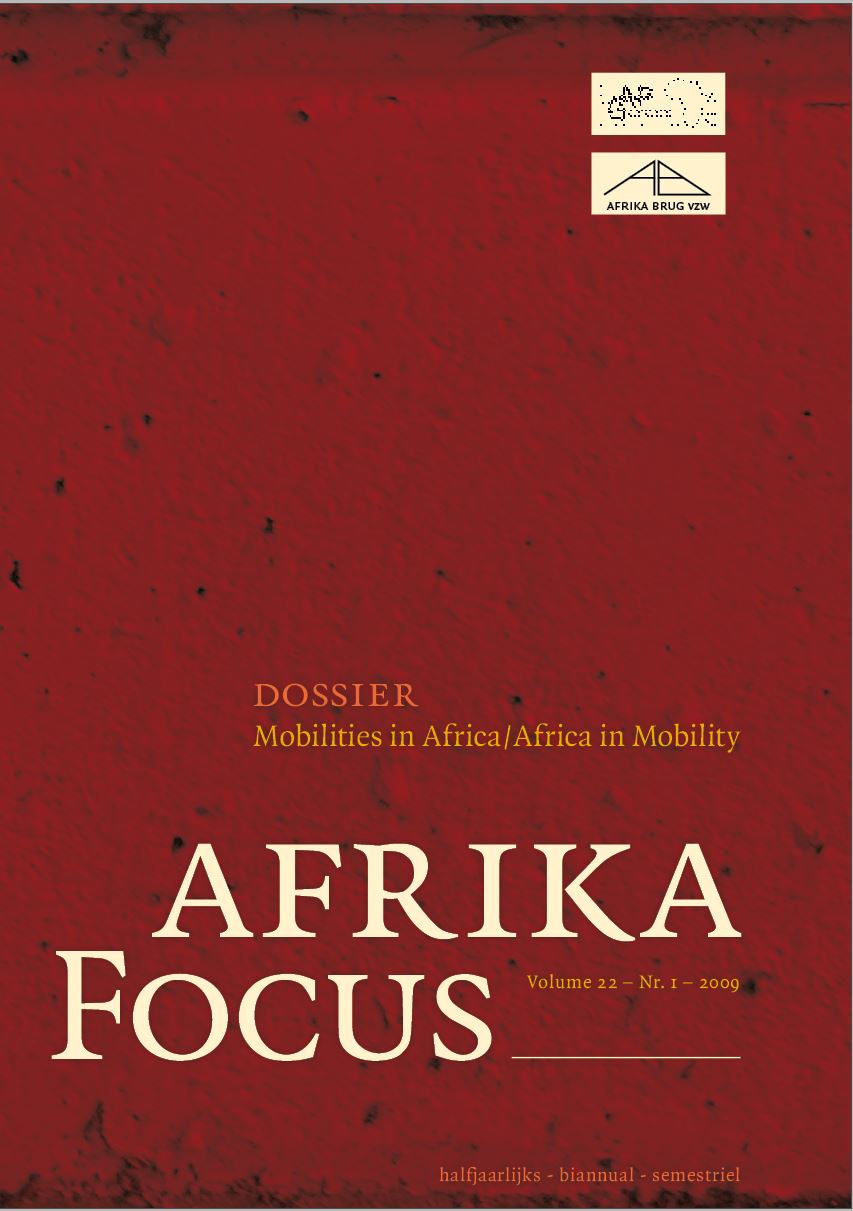Virtuous mobility: moralising vs measuring geographical mobility in Africa
DOI:
https://doi.org/10.21825/af.v22i1.5042Abstract
Mobility practices, discourse and measurement need rethinking in an age of energy shortages, environmental anxiety and virtual mobility. Standard numerical indexes and other proxies for geographical mobility can be misleading, not least in formulating public policy. The extremes of spatial mobilities in Africa may require particularly sensitive consideration; the peculiar social, psychological and economic dimensions of geographical mobility on the continent certainly need registering. Yet the exceptionalism of the African case is overdrawn and the developmentalism in- herent in yearnings for more mobility is a short-term exaggeration. Revaluing totemic mechanised mobility is urgently required. The way we act on, and the way we think, talk and write about, geographical mobility needs reconceptualising in terms of fairness, equity, environmental justice, and human rights. Key words: Africa, development indicators, human rights, inequality, mobility, transportDownloads
Published
How to Cite
Issue
Section
License
Authors who publish with this journal agree to the following terms
Authors retain copyright and grant the journal right of first publication with the work simultaneously licensed under a Creative Commons Attribution License that allows others to share the work with an acknowledgement of the work's authorship and initial publication in this journal.
Authors are able to enter into separate, additional contractual arrangements for the non-exclusive distribution of the journal's published version of the work (e.g., post it to an institutional repository or publish it in a book), with an acknowledgement of its initial publication in this journal.
Authors are permitted and encouraged to post their work online (e.g., in institutional repositories or on their website) prior to and during the submission process, as it can lead to productive exchanges, as well as earlier and greater citation of published work (See The Effect of Open Access).


